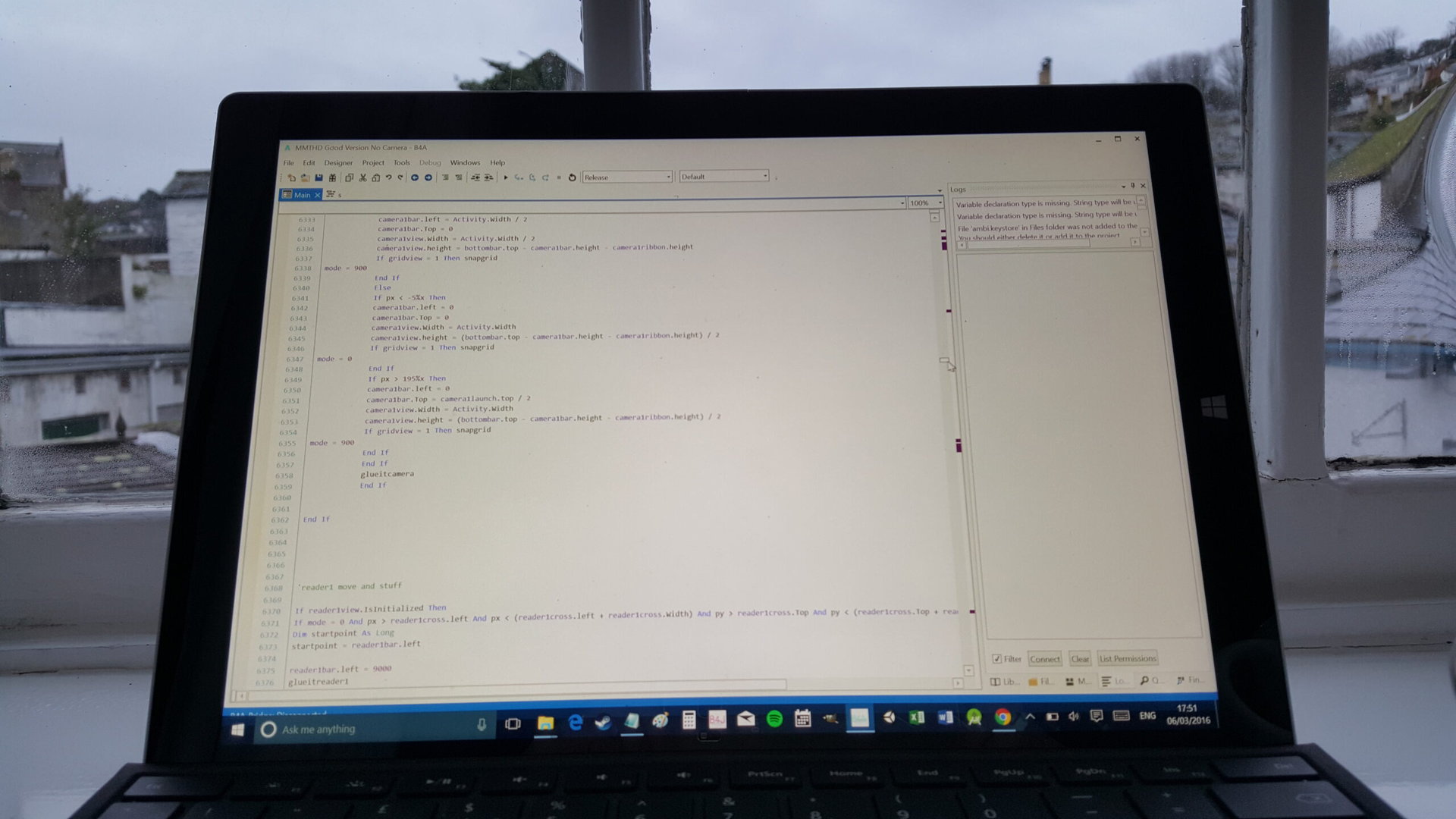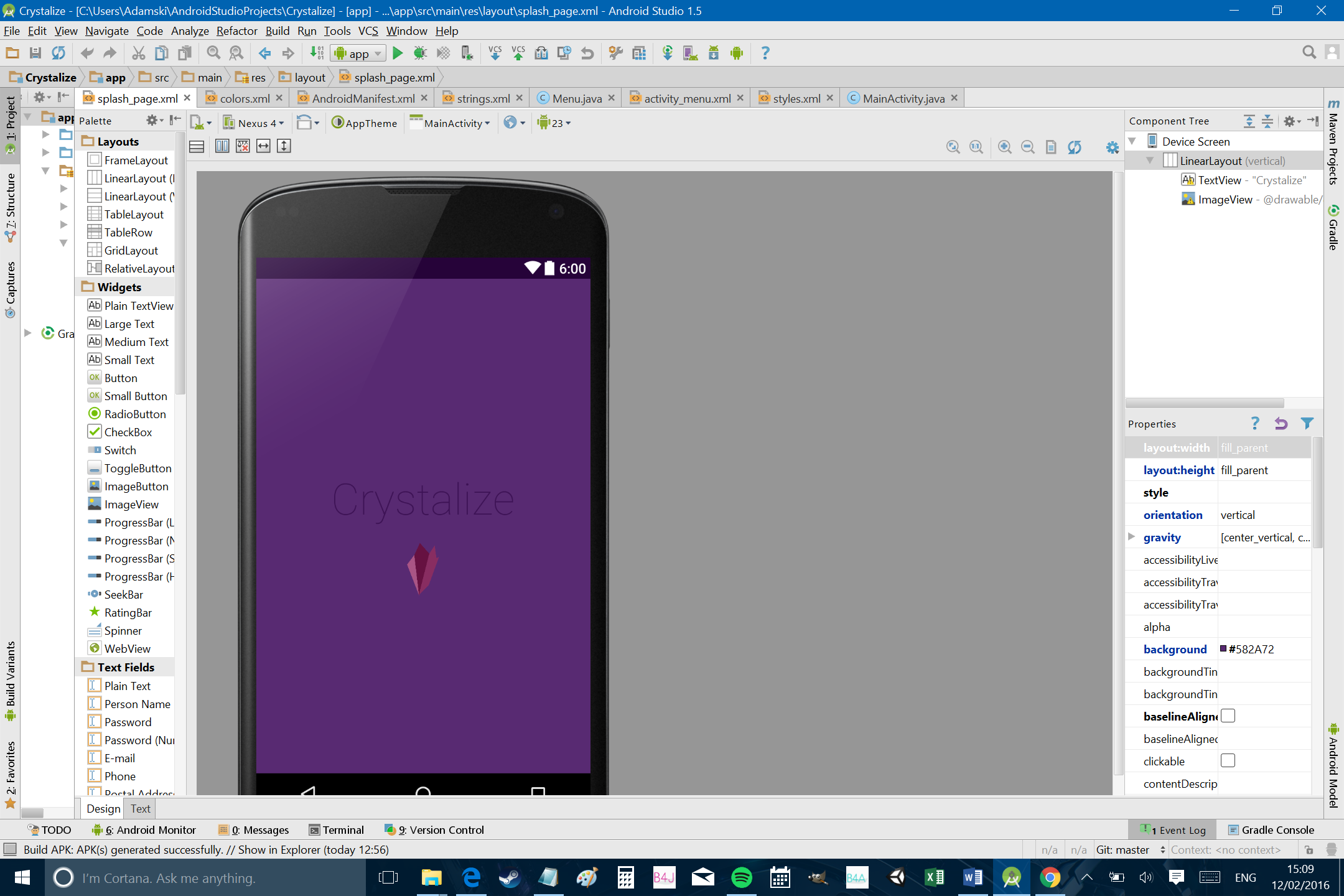Affiliate links on Android Authority may earn us a commission. Learn more.
The top perks of being an Android app developer
Published onMay 17, 2016

Being an Android developer is generally an all-round wicked experience. Whether you work for a big organization or you’re an indie dev selling apps on the Play Store, there are a ton of perks that come with the territory and that make this an excellent career choice.
These benefits go far beyond the obvious ones like job opportunities (though I’ll discuss those too!). I may be a little biased what with being an Android developer, but in terms of job satisfaction, future prospects and perks it’s kind of hard to beat. In this post, I’ll be going over just what makes coding so great and why Android in particular is even better. My hope is that it might be enough to make someone consider this as a job or at least a hobby…
You get to make stuff
The first perk of being a developer for me is how rewarding it is as a job. Any job where you get to be creative is always going to be immensely satisfying and the same goes for all those positions where you have an end product that you can be proud of.

If you are developing apps solo, then it’s an amazing feeling seeing the final product working and watching it rack up downloads and reviews on Google Play. Knowing that thousands of people are using and enjoying things you built, with nothing but your own imagination and skills, is immensely satisfying. A few months back I saw someone using an app I developed while on holiday in Mauritius and that has to be up there with my proudest moments (and he didn’t seem to be hating it…).
On the other hand, if you’re developing for a company, you’ll get a similar sense of accomplishment working as a team to create a piece of software that’s probably millions of lines long and incredibly complex. With the marketing clout of a large organization behind what you’re working on, you can rest assured that it will be seen by an even larger audience and you’ll find you can accomplish amazing things when you work together.
Including things you need yourself…
Once you have the skills you need as a coder, you can start to create apps and tools that you need yourself. This is called ‘scratching your own itch’ and very often it can help you to discover a niche in the market, or to fulfill a need that a lot of people share. Just as cool though are the things that no one else needs – those little tools you’ll build that you do your job or organize your life just that little bit better.
The same goes for making games. When you create a computer game, you’ll often be making the game that you want to play but that doesn’t yet exist. Then you get to play it!
You’re constantly learning
You’ll also love being a developer if you enjoy challenges and learning. This is a job that keeps you on your toes and gets you to really use your grey matter ensuring the days fly by. And because you’ll constantly be looking things up and expanding your abilities, it’s also a job that forces you to grow. If you work for a company, you might find you even get paid to go on courses and to expand your skill-set that way.

You can work from anywhere
If you’re employed, then this will be at the discretion of your employer. But certainly in theory at least, being a developer means that you can work from anywhere in the world – or from your front room. This is ideal if you want to be a ‘digital nomad’ type (traveling the world while working from WiFi spots), or if you just want to travel a bit more and work out of coffee shops (like me). You’ll need a good laptop though!
Likewise, this also means you can decide when you want to work and how much work you want to do. If your friend calls up and wants to meet at 1pm, then you can drop what you’re doing and pick up from where you left off later that evening. This is called ‘lifestyle design’ and it basically means you’re free to live the life you want and fit your work in around it instead of vice versa. You can even choose to be a developer part time, or create apps in the evening as a side project.

And if you want to work outside with the sun on your face while you polish up some code, then you can do that too. Sure, you will still have commitments that you need to fulfill but it’s your decision which of those commitments you want to take on – the things you’re passionate about or that enhance your way of life. To me, this kind of flexibility is something I value above all else in my work.
If you’re working for a big organization and you don’t have this type of flexibility, then consider discussing flexi-time with your employer. You aren’t likely to be tied to the phone, which means there’s very little reason to be stuck in the office. And that’s another big advantage of being a developer: no dealing with the general public!
Right now I’m using this freedom to wait in for a parcel that my wife ordered. Living the dream!

Kudos
I may be shallow, but it’s also just great having a job that people find interesting. This is particularly the case if you make mobile apps (as opposed to corporate software). Unlike many other jobs, telling people you’re an app developer tends to encourage follow-up questions as they ask what kind of things you make. You’ll seem at once entrepreneurial for coming up with ideas and smart for knowing how to program. And your Grandma will be proud, probably.
It’s also fun getting a certain amount of respect among fellow coders. It’s almost like being part of a secret club; not just because you’ll have work in common but also because you’ll think in a slightly different way to everyone else. And when you meet someone else who programs at a party, you’ll find you can spend ages chatting in what seems like a different language to everyone else.
You get to play with cool new tech
If you’re a professional developer, then there’s a very good chance you’ll get the opportunity to play with some cutting edge tech before anyone else. Some companies will even send you things for free if they want you to develop for their platforms. If you work for a large company yourself, you might even get to help bring some exciting new hardware or software to market. One of the great things about working with Android is that it’s on everything from smart TVs to fitness wearables and games consoles – you might get to help usher in the next game-changing AI or smartwatch.
Even if you’re self-employed, you can invest in the hardware you want to develop for and then write it off as an expense! In short, being a developer is a great choice if you have any kind of interest in technology.
And work with forward-thinking companies
I’ve talked a fair bit about the freedom that comes with being a freelance developer. While this is certainly one very appealing aspect of the role though, many of the employed jobs you’ll find have a lot of perks of their own. This list of perks for developers shares many of the cool benefits offered by tech companies, including things like the Google Bus, a ‘jam room’ at Dropbox and… beer.

While it’s certainly a generalization, developing for mobile will often mean working with cool startups instead of stuffy corporations. And if you ever get to work with one of the big players, then you’ll certainly be in the money as well as getting to work on some awesome stuff.
You’re in demand (and potentially well paid)
Learning to build Android apps is one of the best decisions you can make for your career right now and the same can obviously be said for learning to code in general. Forbes recently found that developers in the US currently make an average of $95,000 per-annum, with around 50,000 jobs available at any given time. And with Android being such a large market with clear benefits for numerous industries, you should find no problem in finding Android-related jobs. This has certainly held true in my experience and a quick search on UpWork currently brings up 4,522 job listings for ‘Android development’.
Becoming an independent developer meanwhile is a little like being a struggling actor. While you can go a long time waiting tables, there’s always a chance your ‘big break’ will be just around the corner. All you need is to come up with the right idea or get a bit of exposure from the right source and you can potentially quit your day job and buy a flashy car. Even if it never happens, that possibility alone is tantalizing and enough to keep you motivated.
It leads to other opportunities
Knowledge of Android development can lead to all kinds of other opportunities too. That might mean getting to write about the topic you love (like this!), or it might mean becoming a tester, a teacher, a consultant or an investor. Or you could eventually specialize and become an app designer. Android itself is an entire industry and there are lots of opportunities and jobs within the area.
Android is a great platform to work with
Sure, many of these examples could apply to being any kind of developer but there are many things that make Android a particularly great choice. For one, the barriers to entry here are incredibly low. Once you’ve built an app for Android, you can submit it to the Play Store and it will be live within a few hours. There’s only a single one-off registration fee of $25 USD and Google’s commission is a low 30%. This makes developing for Android a significantly less complicated and expensive experience than developing for iOS.
Despite this easy access, the potential market is also huge. The Play Store gives you access to a massive commercial audience with one active billion users downloading apps last year. At the time of writing, Android’s market share stands at 61.92% for mobile devices and that’s doesn’t include all the other devices that can run Android. This growth has been particularly strong in the last year and it’s generally expected to continue for the foreseeable future.

Developing for Android is also particularly fun and rewarding. This is an OS that people you know will use, meaning that you can share your creations with friends and they can appreciate your work. And while some aspects are a little fiddly, working with Android is fairly easy thanks to the large amount of documentation, resources and tools and a very supportive community. Android Studio makes getting started pretty simple and there are a number of even easier options if that still sounds daunting.
You are future-proofing yourself
As mentioned, Android is expected to continue growing for the foreseeable future. And being a developer in general is a job that’s only likely to become more in-demand and more valuable over time. The IT sector is one that is constantly growing and encroaching on other industries. Many professions and industries are going to become obsolete as we move into the future but the demand for programmers is only likely to grow.
It’s not just your work that will benefit from a bit of coding knowledge though. I’m also talking about daily life. As technology starts to find its way into more and more areas of our lives, understanding it and learning to manipulate it is going to become an increasingly valuable skill.

Who knows, maybe someday your brain chip will run on Android too, or your Typhoon Explosive System, and becoming an Android developer might just be your best chance of surviving the singularity! :-)